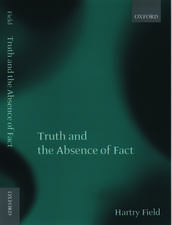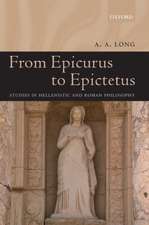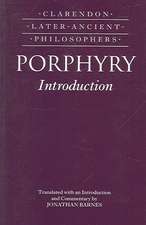John Stuart Mill: On Democracy, Freedom and Government & Other Selected Writings
Autor John Stuart Mill Editat de Zbigniew Janowski, Jacob Duggan Cuvânt după de Ryszard Legutko Introducere de Nicholas Capaldien Limba Engleză Paperback – 4 aug 2019
In addition to “On Liberty” and “On Representative Government,” this new selection of Mill’s writings includes, among others, a number of less known of his writings, such as: “Civilization,” “Perfectibility,” “The Negro Question,” “On Education,” “On Aristocracy,” “On Marriage,” “On Free Press,” “Socialism,” Mill’s review of Tocqueville’s “Democracy in America,” his letters to Tocqueville, and several other writings.
If one can use a somewhat exaggerated language, Mill’s writings are to liberal-democracy what Marx and Engels’ writings were to Communism. Both systems gave expression to 19th century man’s longing for equality and justice, both promised to liberate him from the shackles of oppression, authority and tradition. Instead of liberating man, Communism created the most brutal system in human history, and its spectacular fall in 1989 is one of history’s greatest events. Western world today shows that liberal-democracy is no longer a benign doctrine, which advocates free market, minimum state and individual liberties, but, like Communism, is an all-encompassing ideology which forces an individual to abdicate his freedom and soul in favor of a Communist-like collective.
As many critics of real Socialism could see the seeds of totalitarianism in the writings of Marx and Engels, so one can see the seeds of liberal totalitarianism in Mill’s writings. This new edition is intended to help readers to understand why democratic-liberalism came so close to its 19th century ideological rival.
If one can use a somewhat exaggerated language, Mill’s writings are to liberal-democracy what Marx and Engels’ writings were to Communism. Both systems gave expression to 19th century man’s longing for equality and justice, both promised to liberate him from the shackles of oppression, authority and tradition. Instead of liberating man, Communism created the most brutal system in human history, and its spectacular fall in 1989 is one of history’s greatest events. Western world today shows that liberal-democracy is no longer a benign doctrine, which advocates free market, minimum state and individual liberties, but, like Communism, is an all-encompassing ideology which forces an individual to abdicate his freedom and soul in favor of a Communist-like collective.
As many critics of real Socialism could see the seeds of totalitarianism in the writings of Marx and Engels, so one can see the seeds of liberal totalitarianism in Mill’s writings. This new edition is intended to help readers to understand why democratic-liberalism came so close to its 19th century ideological rival.
| Toate formatele și edițiile | Preț | Express |
|---|---|---|
| Paperback (1) | 291.28 lei 3-5 săpt. | |
| Severus – 5 oct 2014 | 291.28 lei 3-5 săpt. | |
| Hardback (1) | 306.58 lei 3-5 săpt. | +32.27 lei 7-13 zile |
| St. Augustine Press – 12 sep 2022 | 306.58 lei 3-5 săpt. | +32.27 lei 7-13 zile |
Preț: 188.74 lei
Preț vechi: 206.96 lei
-9% Nou
Puncte Express: 283
Preț estimativ în valută:
36.11€ • 37.81$ • 29.88£
36.11€ • 37.81$ • 29.88£
Carte indisponibilă temporar
Doresc să fiu notificat când acest titlu va fi disponibil:
Se trimite...
Preluare comenzi: 021 569.72.76
Specificații
ISBN-13: 9781587314070
ISBN-10: 158731407X
Pagini: 812
Dimensiuni: 152 x 229 x 53 mm
Greutate: 1.04 kg
Ediția:First Edition
Editura: St. Augustine Press
Colecția St. Augustines Press
ISBN-10: 158731407X
Pagini: 812
Dimensiuni: 152 x 229 x 53 mm
Greutate: 1.04 kg
Ediția:First Edition
Editura: St. Augustine Press
Colecția St. Augustines Press
Cuprins
1. Blessings of Equal Justice
2. Persecution for Religious Scruples
3. Resurrection-Men
4. Securities for Good Government
5. Parliamentary Reform
6. Atrocities of the Tread Wheel
7. Old and New Institutions
8. Effects of Gambling
9. Question of Population
10. Effects of Periodical Literature
11. The French Elections
12. Prospects of France
13. Use and Abuse of the Ballot
14. The Truck System
15. The Emigration Bill
16. The Parliamentary Reform Bill
17. Herschel’s Preliminary Discourse
18. Attack on Literature
19. The Peerage Question in France
20. The Sugar Refinery Bill and the Slave Trade
21. The Irish Character
22. Employment of Children in Manufactories
23. Female Emigrants
24. Comparison of the Tendencies of French and English Intellect
25. Property in Land
26. Death of Jeremy Bentham
27. Pledges
28. French and English Journals
29. Necessity of Revising the Present System of Taxation
30. Errors and Truths on a Property Tax
31. The Poor Laws
32. The House of Lords [1]
33. The House of Lords [2]
34. Exception to the Objections to Nominal Punishment
35. Report on the Sanitary Condition of the Labouring Population of Great Britain
36. Enlightened Infidelity
37. England and Ireland
38. The French Law Against the Press
39. The Attempt to Exclude Unbelievers from Parliament
40. Corporal Punishment
41. The Californian Constitution
42. Questionable Charity
43. The Law of Assault
44. Punishment of Children
45. The Law of Lunacy
46. A Letter on Poland
47. England and Europe
48. Advice to Land Reformers
49. Should Public Bodies be Required to Sell their Land?
50. The Right of Property in Land
51. Review of Grote’s History of Greece – Part 1
52. Review of Grote’s History of Greece – Part 2
53. Review of Grote’s History of Greece – Part 3
54. Review of Grote’s History of Greece – Part 4
55. Review of Grote’s History of Greece – Part 5
56. Review of Grote’s Plato and Other Companions of Sokrates
57. Translation of Plato’s Apology of Socrates
58. Translation of Plato’s Protagoras
59. Translation of Plato’s Gorgias
2. Persecution for Religious Scruples
3. Resurrection-Men
4. Securities for Good Government
5. Parliamentary Reform
6. Atrocities of the Tread Wheel
7. Old and New Institutions
8. Effects of Gambling
9. Question of Population
10. Effects of Periodical Literature
11. The French Elections
12. Prospects of France
13. Use and Abuse of the Ballot
14. The Truck System
15. The Emigration Bill
16. The Parliamentary Reform Bill
17. Herschel’s Preliminary Discourse
18. Attack on Literature
19. The Peerage Question in France
20. The Sugar Refinery Bill and the Slave Trade
21. The Irish Character
22. Employment of Children in Manufactories
23. Female Emigrants
24. Comparison of the Tendencies of French and English Intellect
25. Property in Land
26. Death of Jeremy Bentham
27. Pledges
28. French and English Journals
29. Necessity of Revising the Present System of Taxation
30. Errors and Truths on a Property Tax
31. The Poor Laws
32. The House of Lords [1]
33. The House of Lords [2]
34. Exception to the Objections to Nominal Punishment
35. Report on the Sanitary Condition of the Labouring Population of Great Britain
36. Enlightened Infidelity
37. England and Ireland
38. The French Law Against the Press
39. The Attempt to Exclude Unbelievers from Parliament
40. Corporal Punishment
41. The Californian Constitution
42. Questionable Charity
43. The Law of Assault
44. Punishment of Children
45. The Law of Lunacy
46. A Letter on Poland
47. England and Europe
48. Advice to Land Reformers
49. Should Public Bodies be Required to Sell their Land?
50. The Right of Property in Land
51. Review of Grote’s History of Greece – Part 1
52. Review of Grote’s History of Greece – Part 2
53. Review of Grote’s History of Greece – Part 3
54. Review of Grote’s History of Greece – Part 4
55. Review of Grote’s History of Greece – Part 5
56. Review of Grote’s Plato and Other Companions of Sokrates
57. Translation of Plato’s Apology of Socrates
58. Translation of Plato’s Protagoras
59. Translation of Plato’s Gorgias















